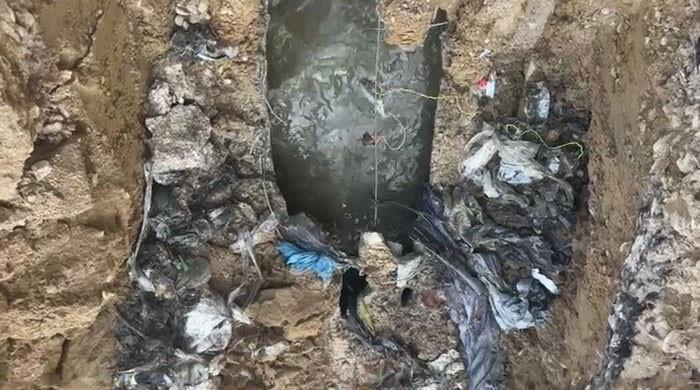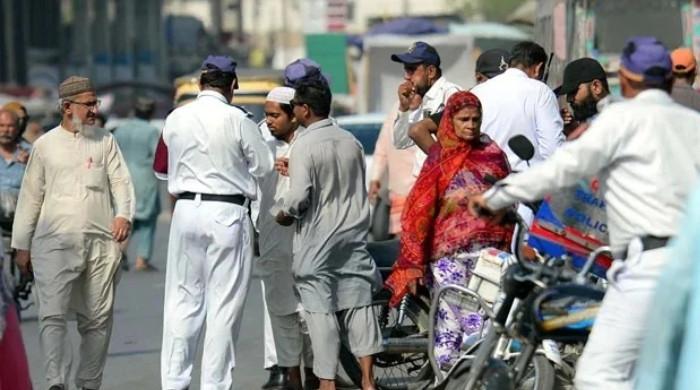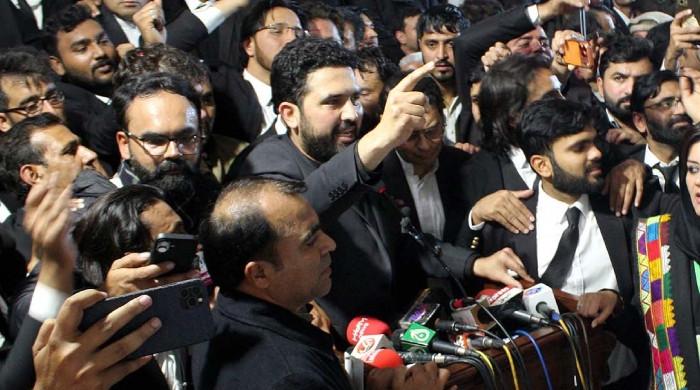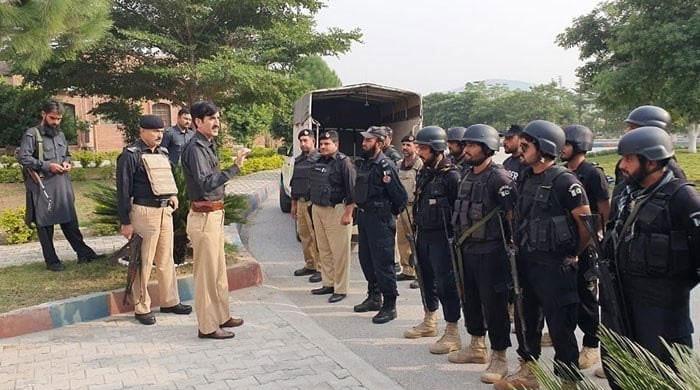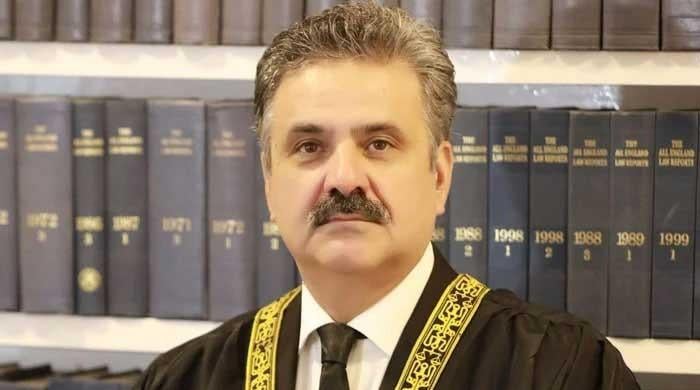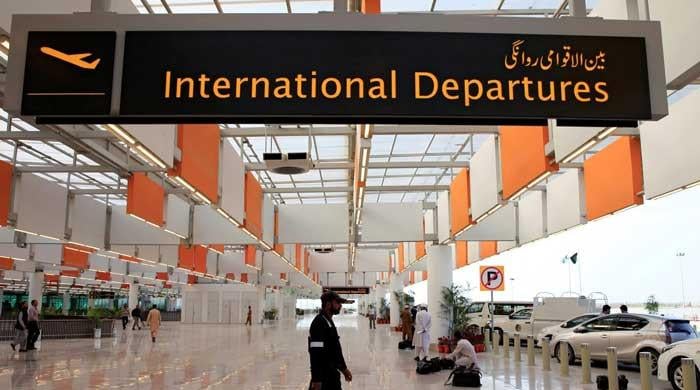In interaction with Harvard students, PM says Pakistan and India can’t afford another war
Kashmir issue should be resolved per Kashmiris' wishes, "nothing less will suffice", says PM Shehbaz
August 20, 2022
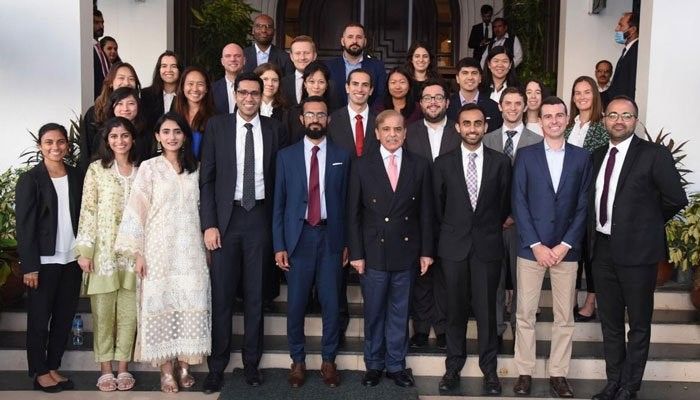
- PM Shehbaz Sharif reaffirms Pakistan's strong commitment to regional peace.
- Says "we want permanent peace with India".
- Pakistan’s economic crisis stems from structural problems, political instability, he adds.
Prime Minister Shehbaz Sharif reaffirmed Pakistan's strong commitment to regional peace on Friday, but added that long-term peace in South Asia was connected to resolving the Jammu and Kashmir issue in accordance with UN resolutions and Kashmiris' wishes, and that "nothing less would suffice".
"We want permanent peace with India through dialogue as war is not an option for either of the countries," he said, while talking to a group of students from Harvard University, USA.
Shehbaz pointed out that Islamabad and New Delhi should have competition in trade, and the economy, and improving the conditions of their people. Pakistan was not an aggressor, but its nuclear assets and professionally trained army were a deterrent, he said.
"We spend on our military to protect our frontiers and not for aggression," Shehbaz Sharif said.
In response to a question about the national economy and the IMF programme, the PM said that Pakistan’s economic crisis stems from structural problems along with political instability in recent decades. He said the first few decades since the inception of Pakistan witnessed impressive growth across all sectors of the economy when there were plans, national will, and the implementation mechanism to produce outcomes. "Over time, we lost the edge in sectors in which we were ahead. The lack of focus, energy, and policy action led to a reduction in national productivity," he regretted.
He said that efforts and resources had been deployed to stabilise the economy. Doing so is crucial, but there is still a bumpy road ahead, he added.
"We have work ahead which involves prudent policies keeping the big picture in mind," he said.
The PM said that his economic action plan has three prongs; revitalisation of the economy, making information technology (IT) a pivot of national development, and exports to lead the economy.
The PM also shed light on his futuristic programme of free laptops given to high achievers in PML-N’s previous tenure, which not only helped the students continue their education in the times of COVID-19, but also helped the youth of Pakistan get a strong foothold in the global freelance market.
"For Pakistan to develop, we need to focus on vocational, scientific, and skilled education. A knowledge-based economy is the buzzword and undeniable reality of our times," he said.
He also said: "The government is working on a plan to unpack the country’s huge but untapped potential in the field of information technology. It is our resolve that we increase our IT exports from the existing $2 billion to $15 billion in coming years."
The PM also emphasised the importance of political stability in the country. He said since the economy is dependent on political stability, he had repeatedly offered a grand dialogue, which had the Charter of the Economy as its chief highlight.
In reply to a question about Sino-Pak relations, the PM replied that China and Pakistan are time-tested friends and their friendship gained new heights with the signing of the China-Pakistan Economic Corridor (CPEC). The relationship with China remains the cornerstone of our foreign policy, he said, adding that CPEC has heralded the beginning of a new era of economic development.
Pakistan is ready to promote the spirit of CPEC, which is a win-win partnership for regional peace, security, and development. Relationships in today’s world are not mutually exclusive. "We look forward to engaging with the whole world at bilateral and multilateral levels," he said.
Responding to a question about climate change, the PM reiterated the importance of the responsibility the developed world carries towards developing countries like Pakistan, which is less than 1% contributor to carbon emissions but is the 5th most vulnerable country regarding the effects of climate change.
He also shared the government’s plans to shift from imported fuels to solar, wind, and hydroelectric energy as Pakistan has immense potential in these areas.
The students appreciated the PM’s progressive approach to uplifting Pakistan’s economy, bringing peace in the region and political stability in the country.
The delegation also spoke very highly of the hospitality extended to them by the government and people of Pakistan during their visit.




